
For the past six years, we have invited international craftspeople to apply for our New Makers programme. The successful artists receive expert guidance on their growing businesses, along with a platform on TOAST to sell their handcrafted goods. We started this annual non-profit mentorship to broaden the expression of our brand values, centering around thoughtful production and the preservation of centuries-old techniques. This year’s makers were chosen for their novel and inspiring approaches to such crafts.
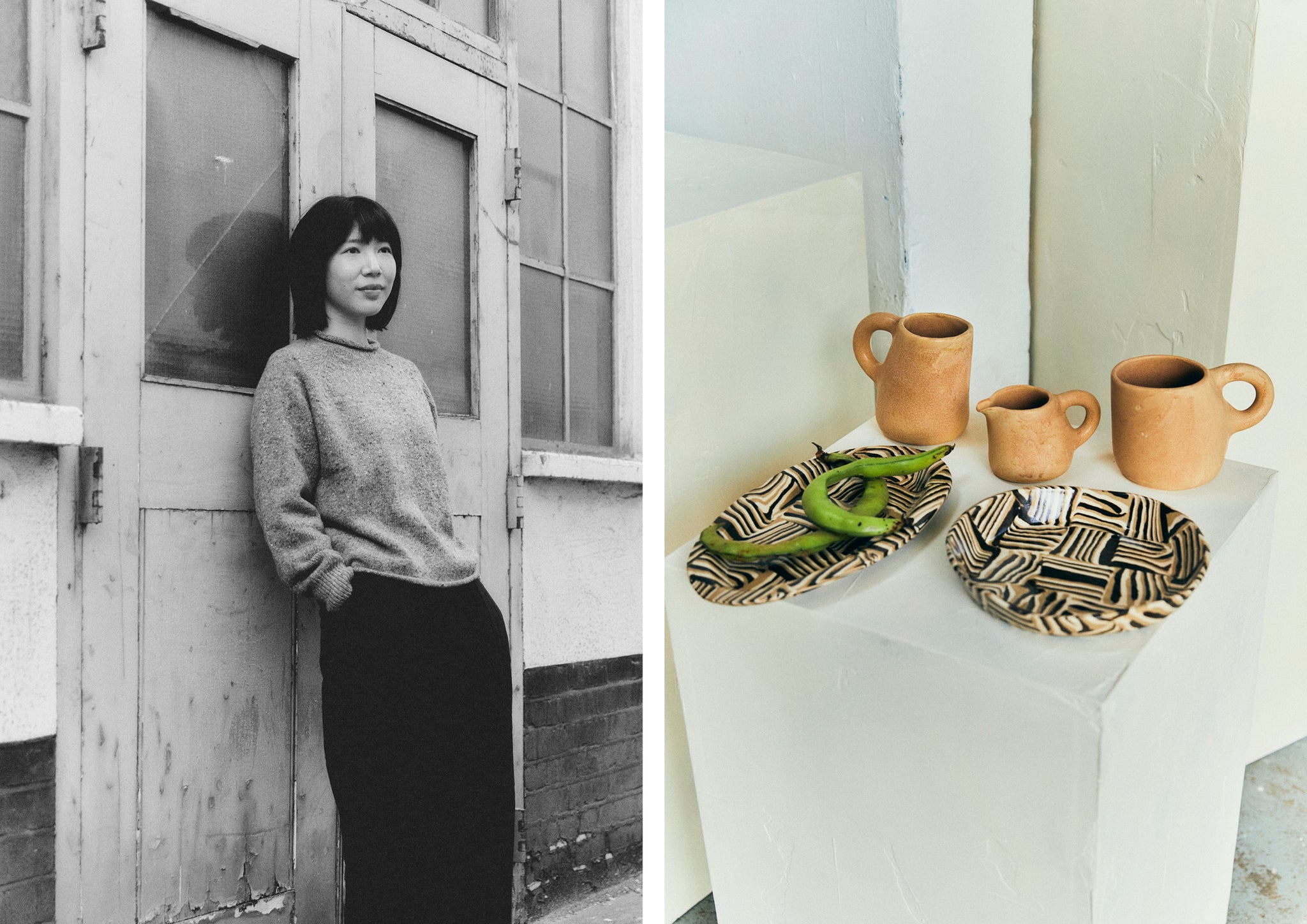
“It’s not an easy career, being a maker,” says ceramicist Polly Liu, one of five participants in our 2024 New Makers programme. “We have a lot of challenges, so it’s great to have this wonderful platform to support us.” Working from a communal studio in Peckham, Polly creates characterful tableware from sustainably sourced clay. She decorates her forms using Nerikomi, a Japanese technique which involves stacking and slicing different coloured clay and allowing natural patterns to emerge. Her interest in this craft reflects her overarching attitude to the material: that it has a mind of its own and can only be controlled to a point. “Clay moves in a really unusual way,” she reflects. “It is not about manipulating it to line up with my design – I have to hear what the clay has to say.”
Furniture designer Will Nock also creates work that responds to his material’s unique nature. After studying graphic design at Falmouth University, Will realised he preferred working with physical materials over channelling his creativity digitally. He taught himself carpentry, learning how to work with the unique grain of different woods to shape it into functional furniture. With a practice perched on the Cornish coast, Will’s pieces are informed by his rugged surroundings and crafted from locally sourced wood.
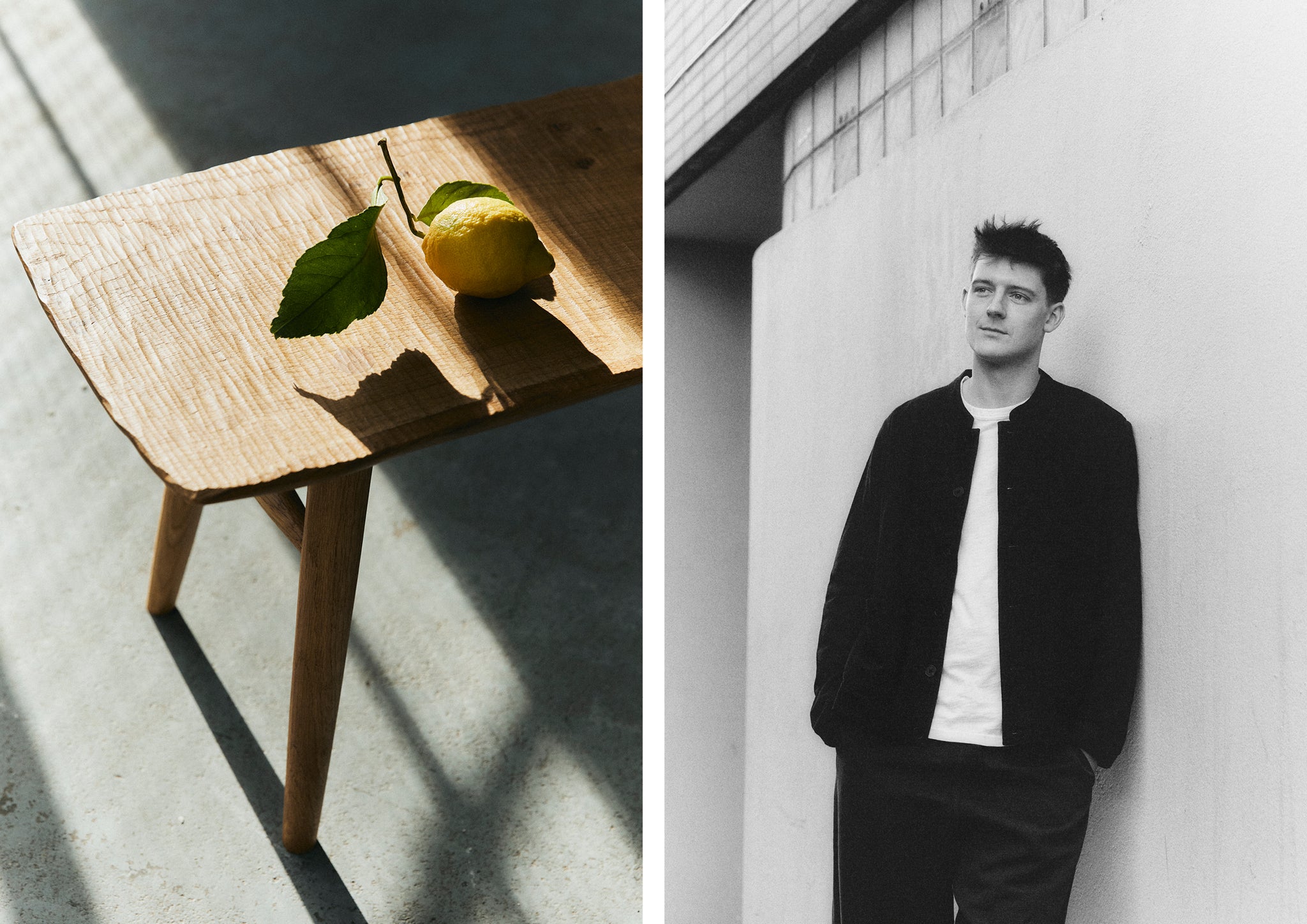
“Even after the tree has been chopped down, the wood still breathes and reacts to the humidity,” he explains. “It moves with the seasons, so you’re sort of giving it a second life.” All of his pieces for TOAST will be made from oak, a material known for its longevity and durability, and will range from a spindle-legged side table to a bench with a hand-textured surface. “My hope is that the pieces I make become part of a household’s permanent collection; something that can be passed down to the next generation.”
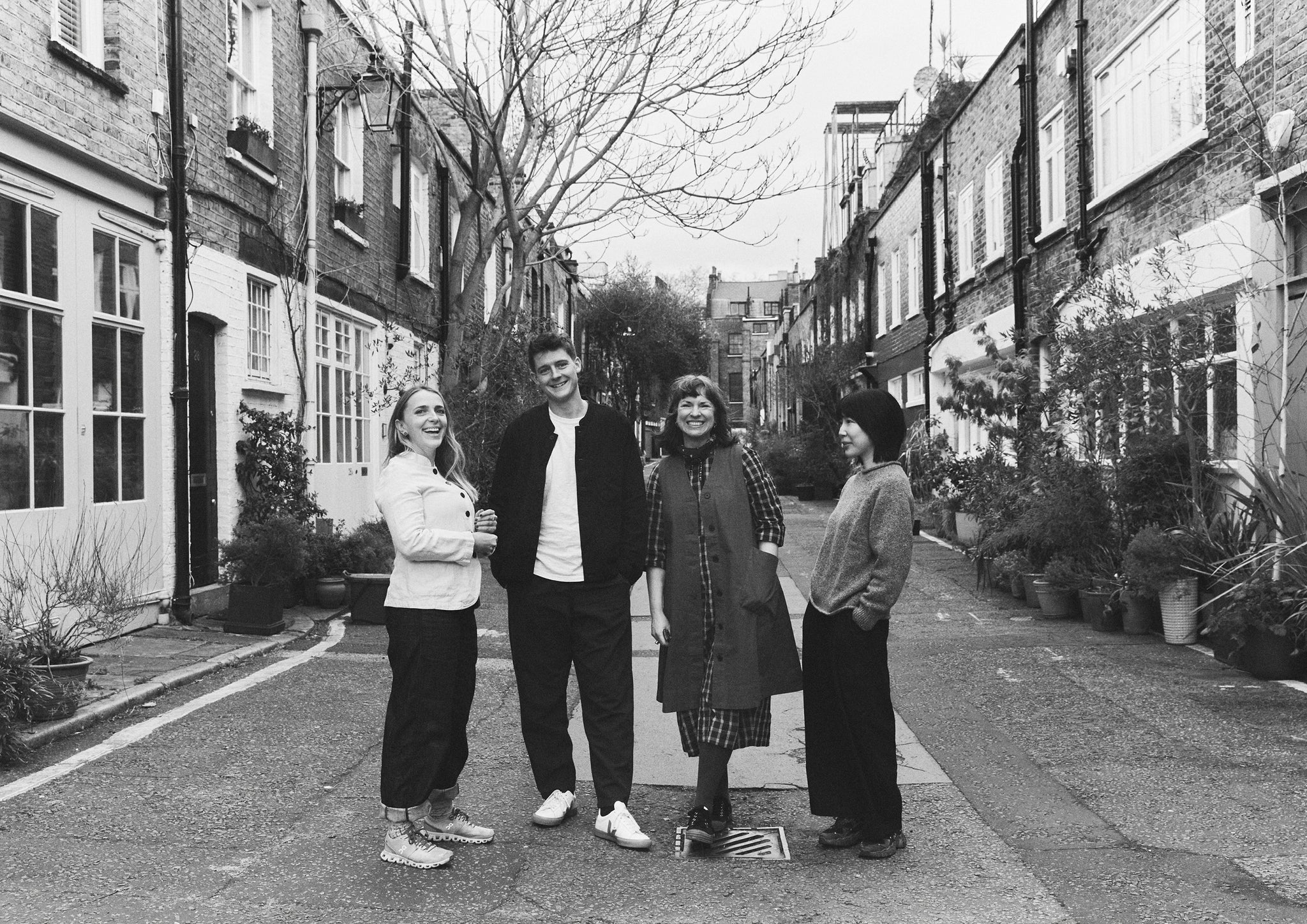
Kate Semple, an illustrator-turned-potter on our 2024 New Makers programme, is also drawn to the unpredictability of her material. “I love the idea that anyone can create with clay. We all start with the same lump of clay, but every single person will make something so different.” After bringing collage into her illustration work in her twenties, Kate eventually started experimenting with three-dimensional forms. At first, she was interested in figurative shapes and constructed figures made from paper. She made a handful of clay busts around the same time, but it wasn’t until lockdown that a passion for ceramics took hold.
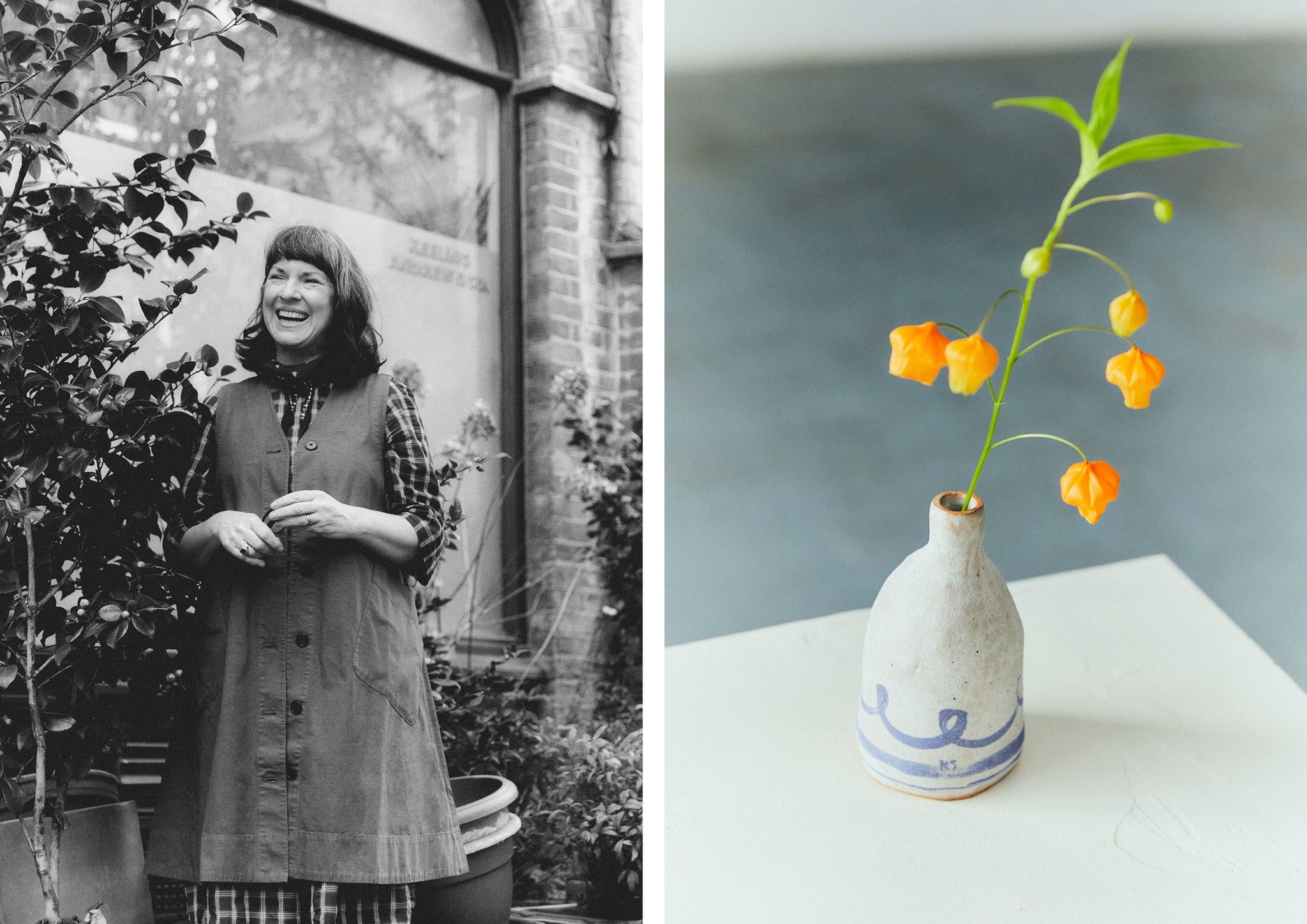
In her York studio, Kate uses pinching, coiling and slab building techniques to shape her vessels, appreciating that all these processes require are clay and her bare hands. “I’ve never been drawn to the wheel, I’ve always just wanted to sculpt.” Once the form is finalised, she sweeps a dolomite glaze over the surface and decorates it with striking handpainted lines. Now, she works at the craft full-time. “Doing it as a job is still quite new to me. I’m hoping that through the TOAST New Makers programme, I will develop to the point where everything I do looks like my work.”
Amy Krone also started out in graphic design, working as an art director until 2021 when she moved to Hawaii and discovered basket weaving. Now living in the Hudson Valley, upstate New York, Amy credits a “lucky find” in a bookstore with leading her to her speciality craft, Appalachian basketry. “I took the book into the woods with me and figured out how to make a basket, and the rest is history.” This is where she started, and today she continues to spend time in her local forest, sustainably harvesting native white oak from her land to weave into one-of-a-kind baskets. “There’s a spiritual element to being in the woods. Being surrounded by something greater than myself is extremely humbling.”
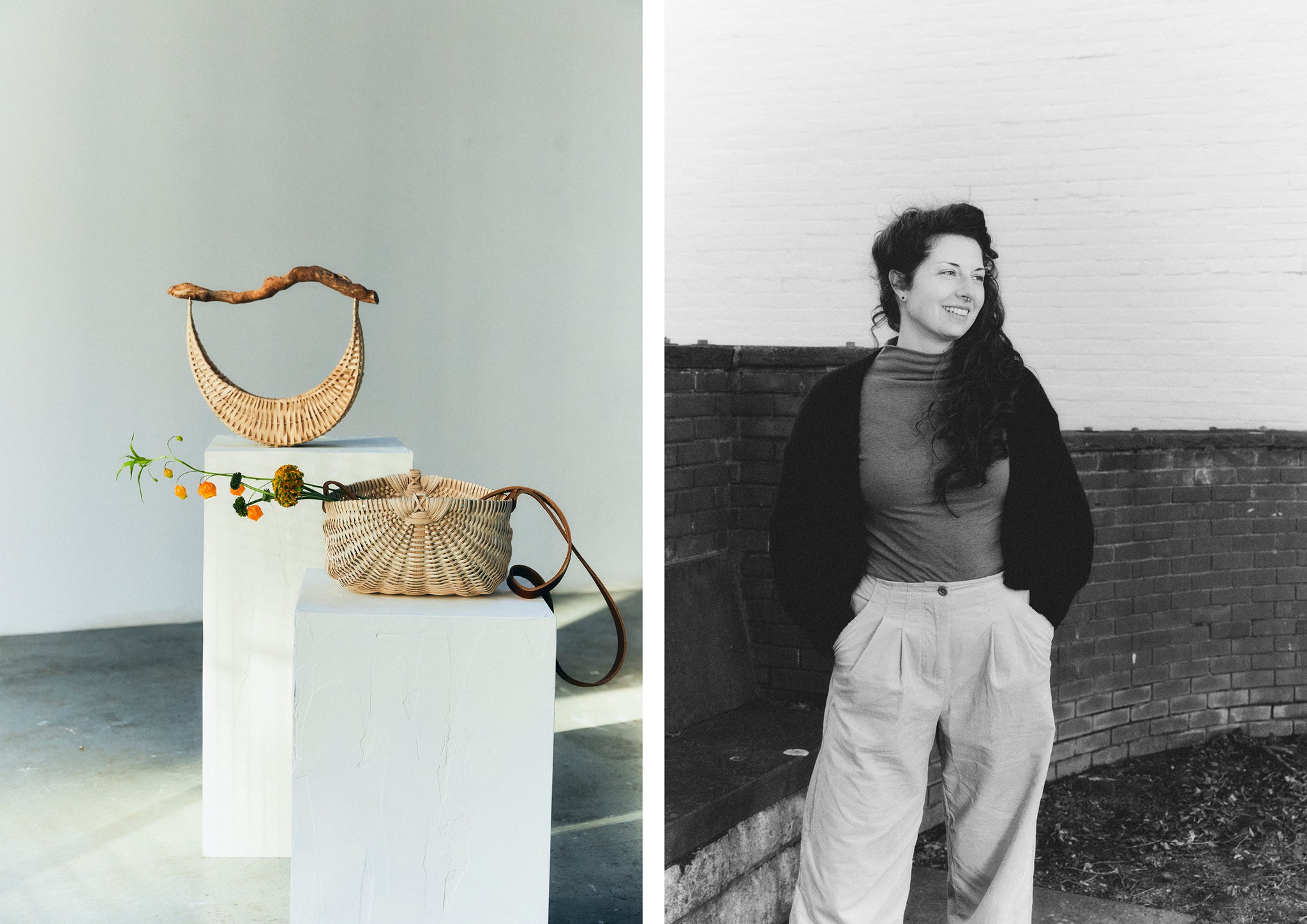
Her respect for the craft’s history is evident, particularly as her first-hand experience has enlightened her to its challenges. The process is physically demanding, requiring her to split the oak into thin, pliable strips for weaving. “The people in Appalachia didn't have much and they were able to figure it out with just a little bit of muscle and a couple of axes,” she says. “I feel a real sense of awe in honouring the traditions of people who have come before me.”
While Amy’s baskets are intrinsically linked to nature and times gone by, our fifth New Maker takes an alternative approach to her craft. Royal College of Art graduate Rosie Stonham creates organic-shaped glass vessels as a material expression of her interest in biology. Specifically, her work explores the function of membranes and the movement of matter between the body and the external world. “The pieces for TOAST were originally part of a series which examines consciousness and how the material of our bodies generates our immaterial inner life,” she explains. “They reflect a fantasy imagining of the surfaces and textures within us. I’m very interested in narrative expressed through objects.”

In her London studio, Rosie creates her vessels by scrunching up old newspaper into rough moulds before blowing the glass by hand. As is the case with the human body, no two forms are alike. This is a sentiment which applies to our selection of New Makers for 2024. They share an enthusiasm for sustainable materials and the celebration of time-honoured practices, but beyond these similarities, the pieces they have brought to TOAST are beautifully individual.
Photography by Suzie Howell and Adam Deen.
Add a comment